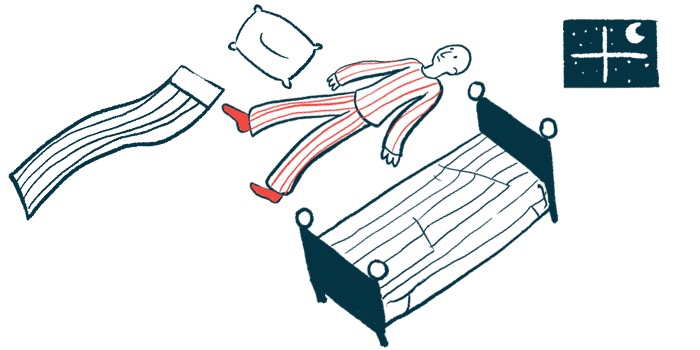Fatigue is one of the most common symptoms of MS. Some of the fatigue is due to the abnormal nerve functioning related to the autoimmune attacks in the brain and spinal cord. However, some of the fatigue is related to sleep disturbances, which only makes the MS-related fatigue worse.
Sometimes the difficulty is falling asleep, sometimes it is difficulty staying asleep and sometimes it is early morning awakening. There may also be poor quality of sleep where the person does not reach the correct stages of sleep for the proper amount of time.
Some of the causes of disturbed sleep can be muscle cramping and twitching, night sweats, the need to urinate frequently, and nerve pain, which are more common in MS patients. Stress and anxiety can also play a role. As a result, patients can experience daytime sleepiness and worsened cognitive functioning.
More complicated causes of insomnia can include sleep apnea, Rapid Eye Movement (REM) sleep behavior disorder, restless leg syndrome, and narcolepsy. While all of these can occur in the general population, about 60 percent of MS patients have a sleep disorder. One theory is that MS lesions in different areas of the brain and spinal cord can cause these sleep disorders. Your doctor may send you for a sleep study to help make a diagnosis.
Tips to maximize the quality of your sleep:
- If you haven’t fallen asleep 15 minutes after getting into bed, get out and read a book or listen to soothing music and try again to get into bed when you feel drowsy.
- No food after 7 pm
- No caffeine after mid-day
- No screen-time for at least an hour before bedtime
- If you are getting up to empty your bladder, talk to your doctor about medications that may help
- Frequent muscle spasms may respond to Magnesium at bedtime or to prescription meds
- Nap less and exercise more
- Check your medication list to see if anything you are taking causes insomnia and discuss with your doctor if your dosing schedule should be adjusted.
- Address anxiety or depression you may be experiencing
- Consider Magnesium, Melatonin or a prescription medication to help you sleep
BeCare MS can help you track not only your neurologic and cognitive function, but also your mood. Become empowered and be a driver in your own healthcare plan.

Hello i have msbut i have been fighting to gain my contol in everthing but its not easy